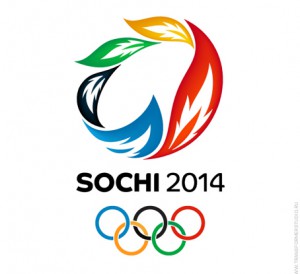 With millions of viewers from around the world watching the Winter Olympic Games currently taking place in Sochi, not many people really know very much about this Russian city.
With millions of viewers from around the world watching the Winter Olympic Games currently taking place in Sochi, not many people really know very much about this Russian city.
Sochi, often referred to as the summer capital of Russia, is the country's largest resort city. It is located in the Krasnodar region, situated on the Black Sea coast of the North Caucasus.
In fact, Sochi is the leading health-improvement and recreational center of Russia with 227 large establishments of treatment and leisure as well as hotels and tourist facilities. Sochi has a total capacity of 65 thousand summer accommodations and 47 thousand year-round accommodations.
Sochi is a city with more than 400,000 inhabitants representing over 100 nationalities. 62% of Sochi's total population is of working age, a total of over 249 thousand people. There are more than seven thousand enterprises in Sochi. The largest sector is the trading group with a total of 2125 firms, followed by the construction industry with 1078. Hotels and restaurants come next with 671 establishments and transport and communications trail with 461. Sochi's smallest enterprise group is agricultural with only 49 businesses preceded by 384 industrial concerns.
Russian Economy
Russia's economy grew only 1.3% in 2013, not enough to have an impact on the lives on most of the Russian population. According to First Deputy Prime Minister Igor Shuvalov, this "?can't even be regarded as growth." Government forecasts indicate that the economy, which expanded at an average rate of 7 percent in the first eight years of Putin's rule, will grow at a third of that pace between now and 2030.
Instead of allocating funds for schools, hospitals and general infrastructure needed to revive the country's growth, Putin laid out $45 billion to host what has turned out to be the most expensive Winter Olympics ever. For the Sochi games, Russia had to build the sports-specific infrastructure almost from scratch and only 15 percent of the infrastructure was ready when Russia won the rights to host the Olympics. Unlike previous Winter Olympic locations, Sochi had never been developed as a ski resort.
Sochi's preparation plan for the Games called for the construction and modernization of the airport, railways, highway interchanges and bypasses. In total, the government spent 530 billion rubles ($15,261,460,964) and private investors came up with another 1 trillion ($28,815,373,179). Russia built 14 venues, including the main stadium and four ski resorts and added 19,000 hotel rooms. More than 73,000 workers were involved in the construction of 260 kilometers of roads, 200 kilometers of railway, 54 bridges and 22 tunnels.
Boost or Boon?
Tourism accounts for a mere 1.5 percent of Russia's $2 trillion economy and a study released on Feb. 5 by the London-based European Bank for Reconstruction and Development indicated that the current Winter Olympics will boost the economy primarily in the Sochi area.
Although the government is confident that the Winter Olympics will have a lasting benefit on the economy, not everyone agrees with this assessment. The increase in the tax revenue from the expected tourism is unlikely to sufficiently cover the anticipated growth in budget expenditure. According to a report by the European Bank for Reconstruction and Development, this astronomical cost will not boost Russia's national economy greatly, but it may create a lasting legacy for the city of Sochi and the southern Krasnodar region of Russia, which will benefit from improved services that may attract business in the future.
